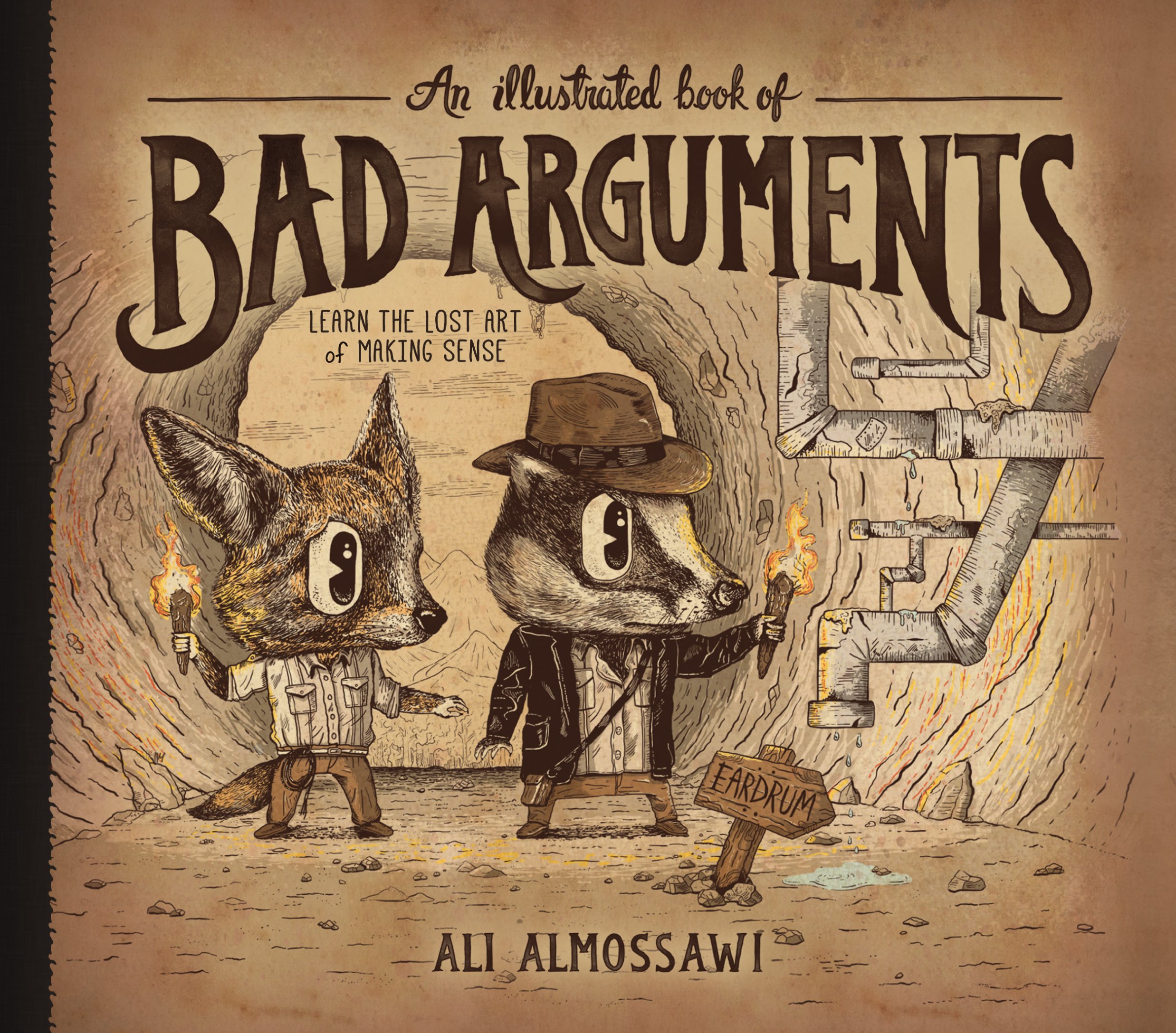Building on the surprising cult success of An Illustrated Book of Bad Arguments, Ali Almossawi returns with his second book, Bad Choices.
Almossawi uses quirky illustrations to look at the logical shortcuts and algorithms we use every. Although we don’t always realize it, we can use these shortcuts to read emails, shop for clothes, and even wash dishes.
“Bad Choices is a book all about faster and slower ways of tackling everyday problems that aims to show how thinking in such terms can lead to better decisions,” explains Almossawi.
Ali Almossawi’s First Best-Seller Teaches Reasoning and Fallacies
Almossawi’s debut book met with unexpected success. The self-published volume uses familiar characters and illustrations to explore common logical fallacies. Favorite stories like Lewis Carroll’s Alice in Wonderland and George Orwell’s Animal Farm make appearances throughout.

The book appealed to such wide audiences that volunteers translated it into 20 different languages. These include Portuguese, Arabic, Russian, and Hebrew.
Despite the book’s success, Almossawi kept his day job with tech-heavyweight Mozilla. He did, however, make time for his follow-up volume, Bad Choices.
Ali Almossawi’s Critical Thinking Leads to Success
Growing up in Bahrain, Almossawi learned to code as a young teenager. This skill would eventually bring him to the United States. In a short time, he earned multiple graduate degrees from Carnegie Mellon and MIT.

In his work in the technology business, Almossawi uses algorithms every day. Many think of algorithms as a subject for mathematicians and computer programmers, but the concept breaks down to the basics of reasoning.

This second volume breaks down algorithmic thinking in everyday life. With examples like matching socks or finding shirt sizes, Bad Choices offers new ways to look at decision-making.
Ali Almossawi Looks to Empathy
Almossawi met with huge success teaching logical fallacies and algorithmic thinking. As a result, he’s considering others areas that might deserve the book treatment. In his next project, he aims to tackle empathy in much the same way he tackled logic and decision-making.
“I like this category of books where it look like it’s for a child, but actually it’s for an adult,” he explains. “And I think I would like to stay in that category, and see if we can do something within the same framework with this new idea.”
The multi-media aspect of his books offers new opportunities to reach wide audiences.

For his new project, Almossawi asked himself, “how do you convey empathy in a way that’s not been done before?” The model of his first two books might offer the answer.



